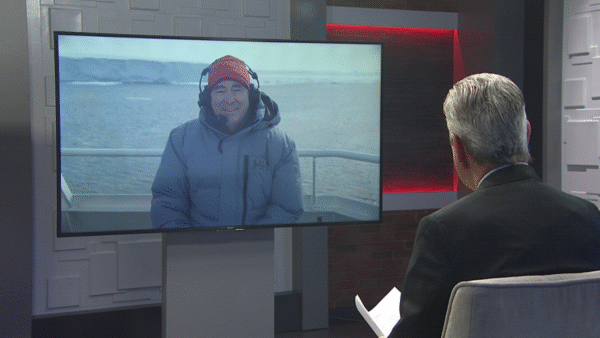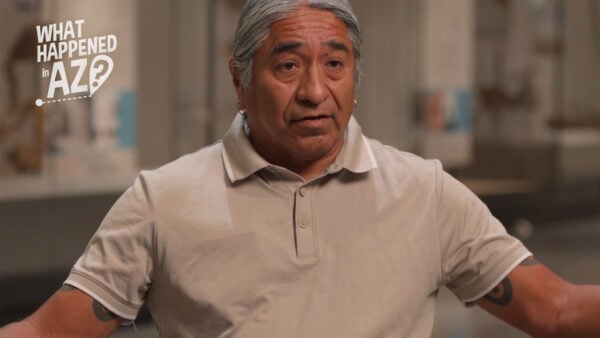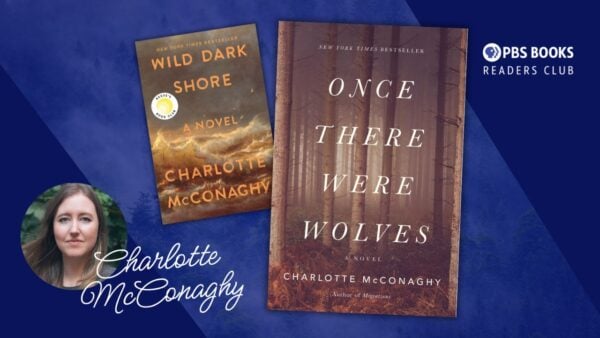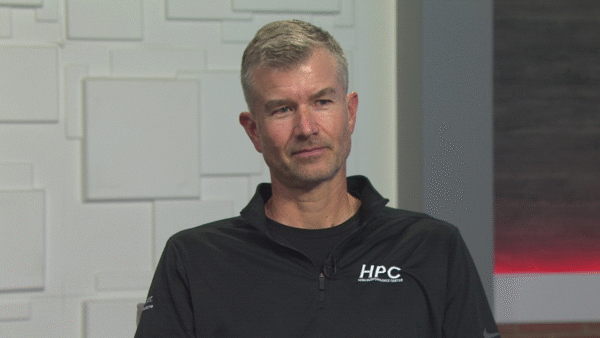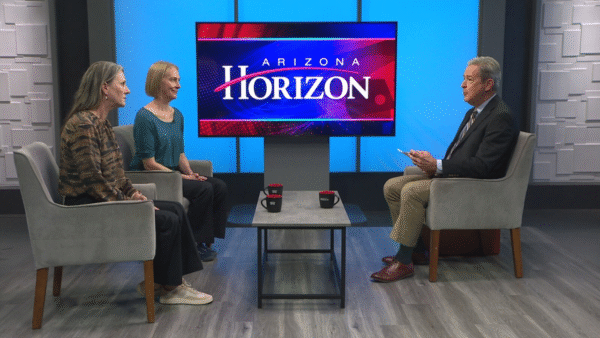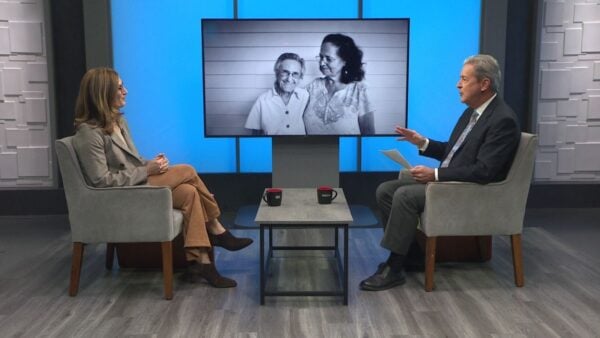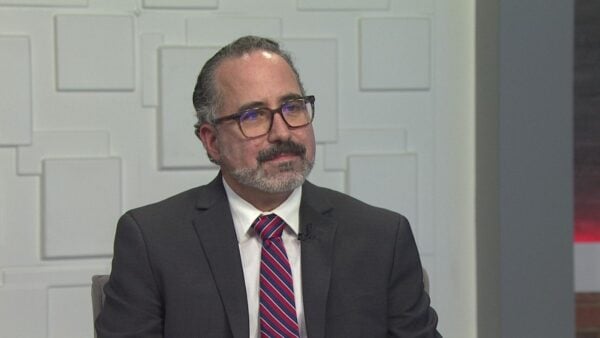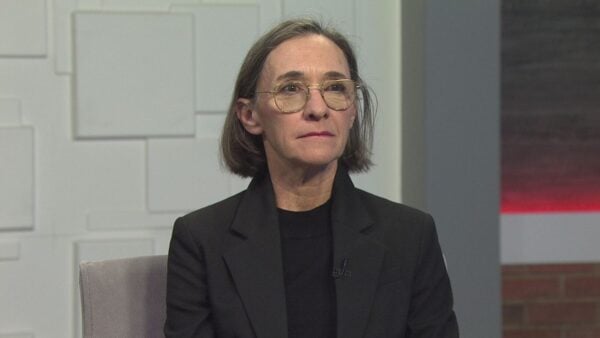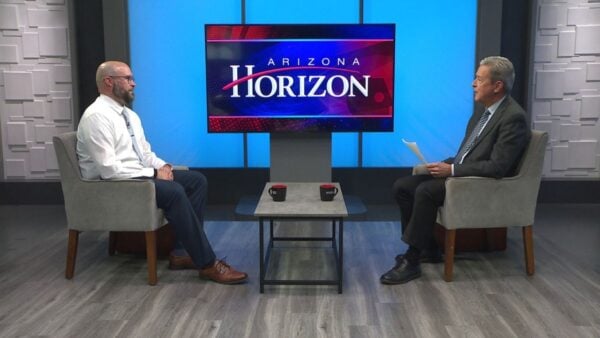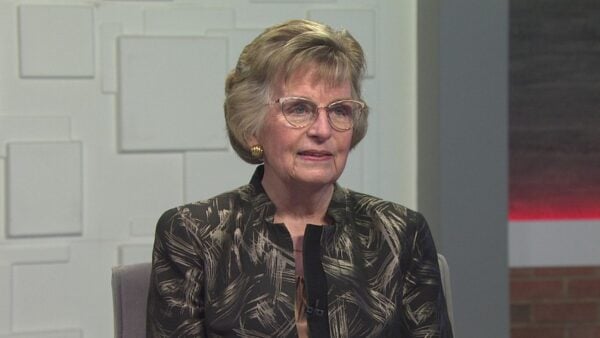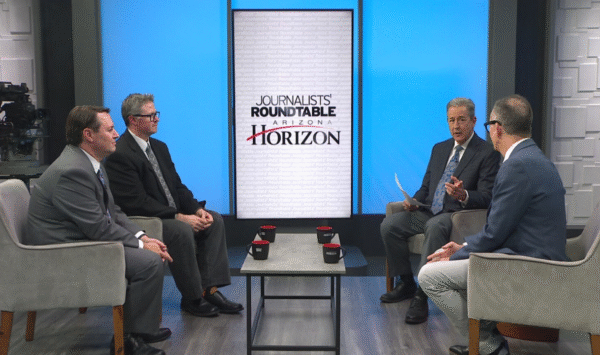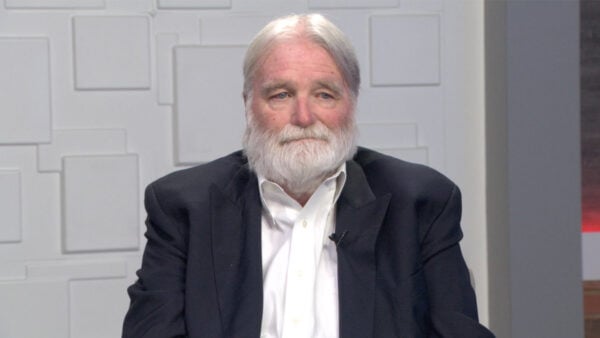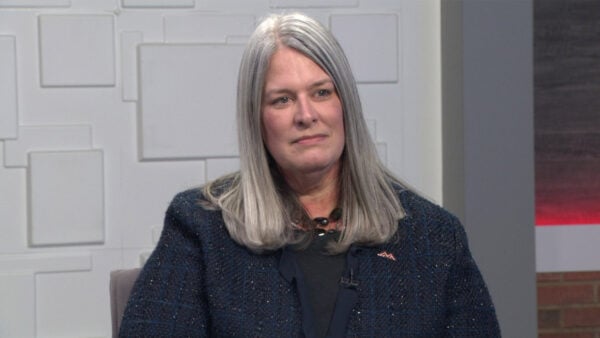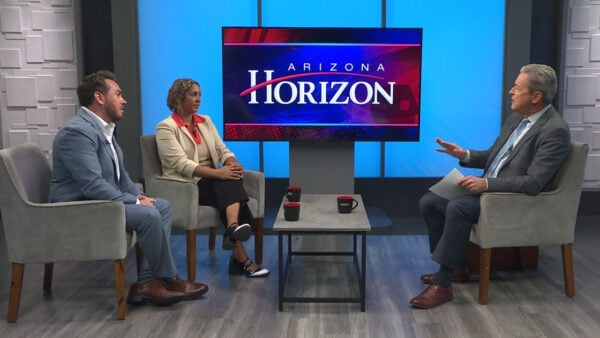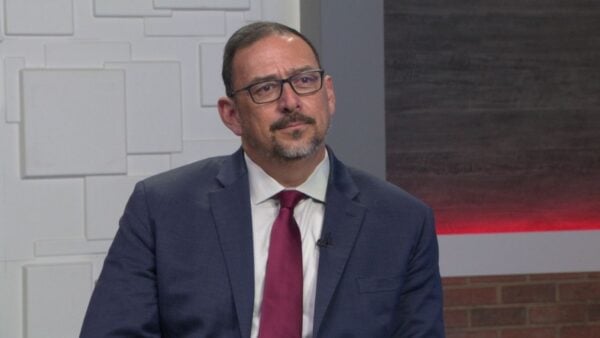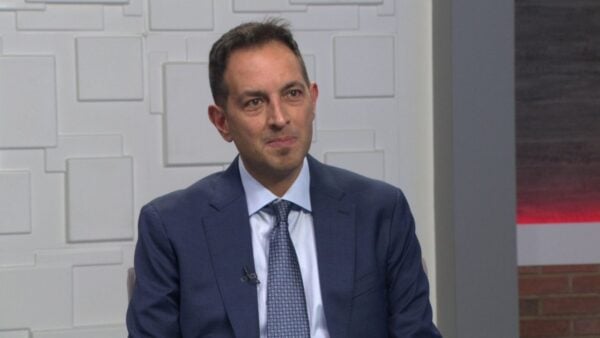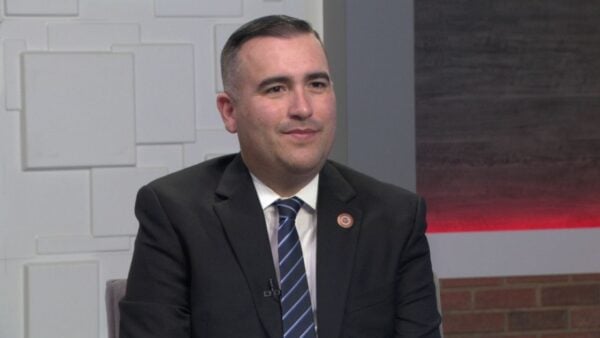The Joe Foss Institute is a Scottsdale-based organization that was founded by Medal of Honor Recipient Joe Foss and his wife Didi. It is dedicated to advancing civics education. The “2014 Stars in Service” dinner benefiting the Institute is set for April 6. The event honors some of our Nation’s preeminent heroes, educators, and public servants, and will feature keynote speaker Charles Krauthammer, along with journalist Carl Bernstein and actor Richard Dreyfuss. Local war hero Pat Tillman will be honored posthumously at the event. Event chair Karrin Taylor and Joe Foss Institute executive director Lucian Spataro will discuss the group and its mission.
Ted Simons: The Joe Foss institute is the focus of tonight's edition of Arizona giving and leading. The Scottsdale-based institute was founded by medal of honor recipient Joe Foss and his wife Didi is dedicated to advancing civics education. Karrin Taylor is the event chairman for the institute's "2014 Stars in Service" benefit, and also with us is the executive director of the Joe Foss Institute, Lucian Spataro. The Joe Foss -- Before we get to the event, what is -- Give me a better definition of the Joe Foss institute.
Karrin Taylor: The mission and goal is to bring civics education back into the classroom. For the last several decades we've had a lot of emphasis on science and math education, which is critically important for America and our role in the global marketplace. But at the same time, we can't lose sight of the fact that civics and civics education and a basic understanding of how our government works is critically important. So the focus of an institute is to get curriculum into the classroom, to get veterans into our classroom, and really make sure that our school kids have a basic understanding of our government.
Ted Simons: I was going to say, how exactly does the institute get to school districts, get to education folks and say, we need more of these kids learning about civics?
Lucian Spataro: Well, that's a visibility issue. As Karrin pointed out, civics has been boxed out by the focus on science and technology, and standardized testing and proficiency testing, and funding tied to the proficiency. So we work with the teachers and we have teacher workshops, and we work with teachers in all 50 states and schools to bring civics back into the classroom. And we're doing a supplemental way because it is part of the curriculum across the country, but it's not on the tests that matters. So we focus on the teacher workshops and the volunteer veterans in the classroom, and we bring it into the classroom and work with the teachers and their curriculum.
Ted Simons: Talk more about the volunteer veterans in the classroom. Give us an example of their presence in the room.
Karrin Taylor: We like to have them in the classroom because they can relate their personal experiences on the frontlines, if you will, to kids that otherwise don't have the opportunity to hear those stories. And over time as the numbers of people in our military shrink in comparison to the growth of the overall population, it's harder to do. So we have that as a particular area of focus because we think that connection to real world examples, people who have served the country make a profound impact on educating the kids.
Ted Simons: Has that always been the primary focus of the Joe Foss Institute and if so, has that focus itself changed over the years?
Lucian Spataro: Initially the focus was to bring veteran volunteers into the classroom and talk to kids about the importance of patriotism and community service and why we need to protect the unique freedoms we have as a country. But then the focus has changed to some extent over the last couple years because we have found that there is an issue in the country, and that is that civics is being boxed out. Citizenship is being boxed out of the classroom to some extent in a real sort of way, and we want to bring that back into the classroom. So we bring the curriculum back into the classroom. We didn't do that before. And we bring a flag and the Constitution and the Bill of Rights, a copy of each of those documents, and a flag into the classroom. A lot of states have a provision for having a flag, but they don't fund it all the time. So we bring a flag into every classroom, we explain how to use that, or how to fold it.
Ted Simons: Has this situation occurred -- Is it just difficult to test civics? It's hard to do in A, B, C, or D, is it because of the politics involved? Is it because it's easier to do science, technology, engineering, and math as opposed to something that can be a little amorphous in terms of the aspects of civics.
Lucian Spataro: Science and technology, science and math are -- Because they're data driven, they might be to some extent easier to test or assess, and civics being a softer science might not be because civics is a narrow discipline within the social sciences essentially. And I think that might be one issue. But I think the emphasis is just -- The pendulum has swung too far, and now we've got to bring it back in the middle and broaden the curriculum out a little bit.
Ted Simons: The "2014 Stars in Service" event, what's that all about?
Karrin Taylor: That is this Sunday night, at the Camelback Inn. It's our annual event to raise much-needed funding to operate the institute, and get the veterans into the classrooms and provide scholarships for students. This year we're very excited, we have Charles Krauthammer as our keynote speak speaker, Carl Bernstein, so we've got a great lineup of honorees. General Mosley, Ross Perot Jr, Craig Barrett. For his work in education. So we've got a tremendous lineup, we're going to have seven -- About people there, so great opportunity to share the message and raise much-needed funds for the cause.
Ted Simons: Did I see Richard Dreyfuss will be there as well?
Karrin Taylor: Yes.
Ted Simons: I can see both sides of the aisle happy and frustrated.
Lucian Spataro: This is a perfect example of this not being a left-right issue. This is an American issue. Civics and citizenship are important, and it's not left or right issue, it's all about America.
Ted Simons: Who was Joe Foss?
Lucian Spataro: Joe Foss was an amazing person. Joe started the institute back in 2001, he was the governor of South Dakota. He was, I don't know if you know this, he was the first commissioner of the NFL. He founded the Super Bowl, we understand. That's debatable, but he claims he did. We'll go along with that. And he really did get involved and bring that together. He brought that together. And he was a Medal of Honor recipient, and he had a real interest in giving back to the community. So he thought this would be the best way he could do that. So he founded the institute and brought the first veterans into the classroom, and it all started with Joe.
Ted Simons: Interesting like someone like Joe Foss, military hero, governor, he has his hands in a lot of things, NRA president. Do you find that kind of person is harder to find these days? Or no?
Karrin Taylor: No, I think there are a lot of people who bring a lot of life experiences to the table. And I think the more of this experience you have, the more you understand the importance of the subject.
Ted Simons: And the more you teach civics in the classroom, the more those little minds become bigger folks that wind up being these kinds of folks.
Karrin Taylor: Absolutely.
Ted Simons: So if you had one thing -- We just talked about education and charter schools in the previous segment, if you had one thing to tell educators about civics in the classroom, what would it be?
Lucian Spataro: It would be that you have to have all the disciplines to become a critical thinker. You can't just focus on math and science. You've got to focus on all the other disciplines too. The sciences are important, I'm a stem professor, and my background is biology. I used to be a professor at the University of Arizona. So I understand from a stem standpoint how important those content areas are, but to be a critical thinker you need look at things from multiple disciplines and perspectives. I think that's what bringing the social sciences in is important.
Ted Simons: And we should mention there is a Sunday evening event?
Karrin Taylor: Sunday evening at the Camelback Inn.
Ted Simons: I hope it's a good event. It's good to have you both here.
Thank you very much.
Ted Simons: Tomorrow on "Arizona Horizon," we'll hear why some analysts are saying that the economy might be ready to show some big-time growth. And we'll talk baseball with Diamondbacks general manager Derrick Hall. That's Tuesday evening 5:30 and 10 right here on "Arizona Horizon."
Ted Simons: That is it for now. I'm Ted Simons. Thank you so much for joining us. You have a great evening.
Karrin Taylor:Event Chair, Joe Foss Institute; Lucian Spataro:Executive Director, Joe Foss Institute;
